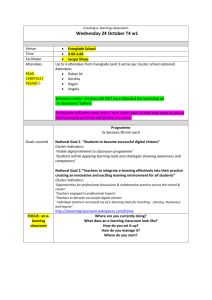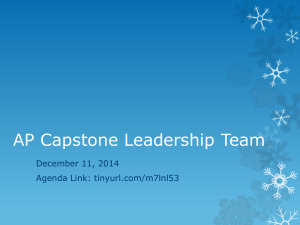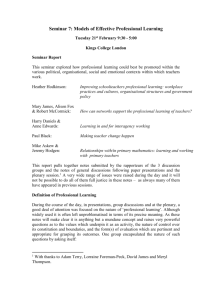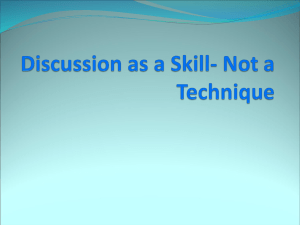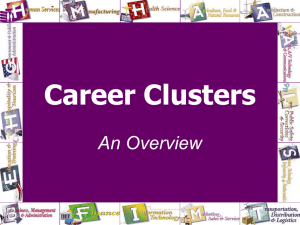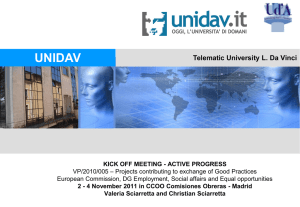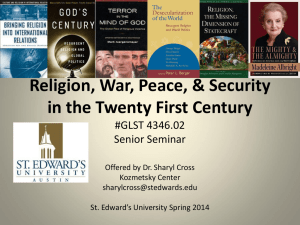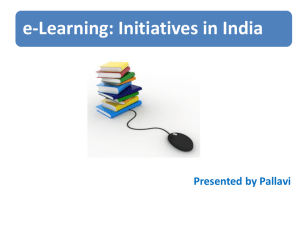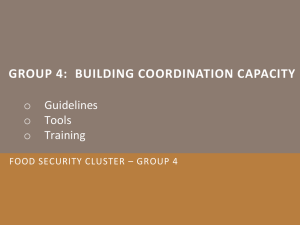At the meeting
advertisement
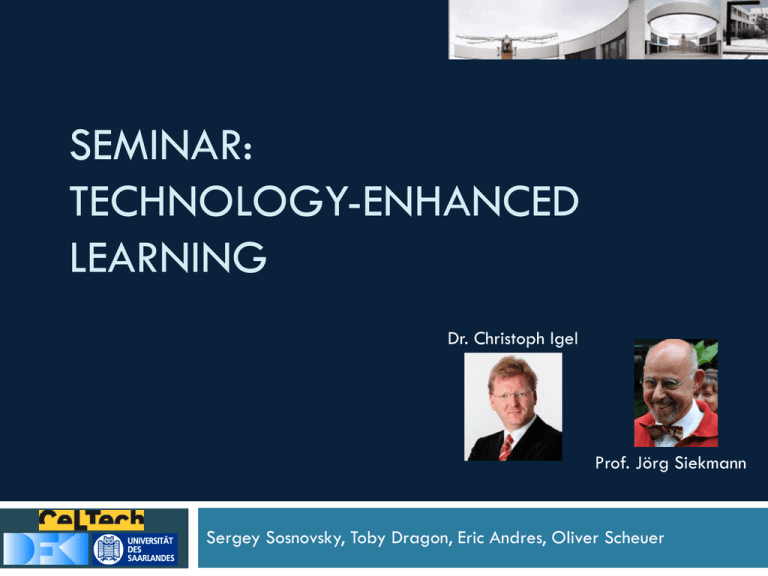
SEMINAR: TECHNOLOGY-ENHANCED LEARNING Dr. Christoph Igel Prof. Jörg Siekmann Sergey Sosnovsky, Toby Dragon, Eric Andres, Oliver Scheuer General organization Seminar (7 credits) Bachelor and Master students are eligible max 27 students (waiting list for the rest) Website: http://tinyurl.com/TEL2012 E-mail: sosnovsky@gmail.com Phone: (0) 681 / 85775-5367 Goals of the Seminar (1) Learn about Computer-based learning Adaptation Collaboration New Support Learning Paradigms Formal Theories and Methods Goals of the Seminar (2) Developing analytical reading skills Developing presentation skills A presentation of a topic (45+45) Joint presentation of a cluster (10 out of 60) Developing scientific discussion skills Everybody will have to read at least 10 papers And be prepared to either ask questions or answer them Asking questions Answering questions Engaging in discussions Developing teamwork skills Joint presentation at the end of the seminar Topic Clusters • Modeling Knowledge • Modeling Meta-cognitive State • Modeling Affective State • Open Student Modeling • Modeling Groups 27 topics Topics are divided into 5 clusters Social and Collaborative Technologies Student Modeling Every student gets a topic • Argumentation-based Learning Systems Recommender Systems for Education Social e-Learning Systems Computer-supported Collaborative Learning Peer-Review, Peerassessment and PeerLearning • Problem Solving Support • Tutorial Dialog Systems • Adaptive Sequencing and Course Generation • Model-tracing Tutors • Constraint-based Tutors • Adaptive Educational Hypermedia Adaptation Technologies 3-4 papers per topics • Intelligent Learning Games Ubiquitous Learning Environments and Mobile eLearning Augmented and Virtual Reality for e-Learning Semantic Web Technologies for e-Learning Pedagogical Agents Emerging Technologies • Item Response Theory Knowledge Tracing Performance Factor Analysis Bayesian Networks for Adaptive e-Learning Educational Data Mining Evaluation of e-Learning Systems Formal Methods and Theories Cluster = focus group (5-6 students & 1 tutor) Structure of the seminar (1) Kick-off meeting AT the meeting: Choose your topic(s) After the meeting: Report your selection: http://tinyurl.com/TEL2012topics Read introductory papers Introductory Reading Discussion At the meeting: Discuss introductory papers After the meeting: Prepare for your Cluster meetings Structure of the seminar (2) Cluster meetings: Before every meeting: Presenter: Reads all papers and prepare the presentation Others: Read at least 1 paper for the topic At the meeting: Presenter: Gives a (45-minutes long) presentation of the topic, answers questions Others: Ask lots of questions Final meeting Before the meeting: Prepare Joint Cluster presentation At the meeting: Present your cluster and answer questions about it Listen to other presentations, participate in the discussions Grading 50% - work in clusters: 25% presentation 25% discussions 50% - work during joints meetings: 25% presentation 25% discussions Attendance matters!!! If you are not in class = you are not participating Important!!! Choose your topic(s): Before 26/10/12 (no topics selected = you have dropped from the course) 1 favorite topic and up to 3 acceptable (wrong selections matter less) http://tinyurl.com/TEL2012topics Read introductory papers: List is on the course website: http://tinyurl.com/TEL2012 Prepare for the discussion (start earning your grade) Next meeting: Introductory Reading Discussion Time: 16/11/2012 (16:00-18:00) Place: TBA
